Off-roading and camping go hand-in-hand, but after a day of trail exploration, getting a good night’s sleep is essential to recharge for the next adventure. With a bit of planning, you can transform your campsite into a cozy haven that ensures a comfortable, restful night under the stars. Here are some top tips on bedding, shelter, and camping setups that make sleeping on your off-road trips as comfortable as it is at home.
1. Choose the Right Shelter: Rooftop Tent, Ground Tent, or Sleeping in the 4x4?
When it comes to sleeping arrangements, comfort starts with choosing the right shelter for your off-road setup. Each option has its own advantages, so consider what works best for your camping style and space needs.
Rooftop Tent: Rooftop tents provide an elevated sleeping area with a mattress, often making them more comfortable than a ground tent. They’re easy to set up, keep you above ground (away from bugs and critters), and provide better ventilation.
Ground Tent: If you prefer to camp separately from your vehicle, a ground tent can provide ample space. Choose a tent with good ventilation, a waterproof rainfly, and enough room to stand up for added comfort.
In-Car Sleeping Setup: For ultimate convenience, some off-roaders convert the back of their 4x4 into a sleeping area. With rear seats folded down, you can create a flat, cozy spot that’s protected from the elements.
2. Invest in Quality Bedding: Mattress Pads, Sleeping Bags, and Pillows
Having the right bedding setup can make all the difference in your camping comfort. Fortunately, today’s camping gear offers plenty of options to create a cozy bed, even in the wild.
Sleeping Pad or Air Mattress: If you’re using a ground tent or the back of your 4x4, a high-quality sleeping pad or air mattress provides essential cushioning from the ground. Look for insulated pads with an R-value (measure of insulation) suited for your camping season to keep you warm and comfortable.
Sleeping Bags: Choose a sleeping bag rated for the lowest temperature you’ll encounter on your trip. For added comfort, a rectangular bag provides more room to move, while a mummy bag is ideal for colder climates.
Camping Pillows: Don’t underestimate the comfort of a good pillow. Travel or inflatable pillows pack small and are easy to bring along, or you can pack a regular pillow from home for added comfort. Some off-roaders even bring extra blankets for a true bed-like setup.
3. Level Up with a Sleeping Cot
Sleeping cots can be a game-changer for comfort, keeping you elevated off the ground, which is especially useful on rough or cold terrain. A cot provides great support and pairs well with a sleeping pad or blanket for an extra-cozy setup.
Benefits: Cots keep you off the cold, uneven ground, providing a stable and comfortable surface to sleep on. They’re especially helpful if you’re camping on rocky or rough terrain where sleeping directly on the ground may be uncomfortable.
Tip: Choose a lightweight, foldable cot for easy packing. Some cots come with built-in storage pockets to keep small essentials within reach at night.
4. Block Out the Elements: Weatherproof Your Shelter
Weather can make or break your camping experience, so it’s crucial to weatherproof your shelter to keep out cold, wind, and moisture. A little prep goes a long way in ensuring a warm, dry night.
Waterproofing: If you’re using a tent, make sure it’s fully waterproofed, and consider applying a waterproof spray to the seams. A rainfly is a must for rainy conditions and provides extra insulation for chilly nights.
Wind Protection: Pitch your tent or rooftop tent in a sheltered area, like near trees or rocks, to buffer against the wind. If you’re camping in an exposed area, secure your tent with extra stakes or guy lines.
Temperature Control: Use a tent heater (with proper ventilation) or hand warmers to keep warm on cold nights. For hot climates, choose a well-ventilated tent or bring a portable fan to help circulate air and stay cool.
5. Set the Mood with Ambient Lighting
A well-lit campsite adds warmth and creates a cozy atmosphere, making it easier to wind down before bed. The right lighting is practical for navigating your tent and gives a comforting, homey vibe to your camp setup.
String Lights: Battery-powered string lights create a soft, ambient glow that’s perfect for relaxing in your tent or around camp. Hang them on your tent’s interior or across your rooftop tent’s frame.
Lanterns: LED lanterns provide bright, steady light and are a great addition for any campsite. Choose a dimmable lantern to adjust the brightness for bedtime.
Headlamp: A headlamp is essential for nighttime tasks and finding your way around camp in the dark. It’s a practical tool that leaves your hands free, making it ideal for late-night bathroom trips or finding items in your tent.
6. Use a Tent or Car Heater for Cold-Weather Camping
For colder nights, a portable heater can make your camping experience significantly more comfortable. While many models are compact and safe for camping, always ensure proper ventilation to avoid any safety risks.
Portable Propane Heater: A compact propane heater like the Mr. Heater Buddy provides safe heating for tents and vehicle interiors. Make sure there’s enough ventilation and never leave it running unattended.
Electric Heater with Power Source: If you have a power bank or generator, a small electric heater can also work. These are best suited for campers with rooftop tents or converted car interiors.
7. Block Out Noise and Light
Camping in nature often means dealing with sounds from animals, the wind, or nearby campers. Simple items like earplugs or an eye mask can help block out distractions and ensure a restful night.
Earplugs: For light sleepers, earplugs can block out sounds and help you fall asleep faster. Soft, foam earplugs are inexpensive and easy to pack.
Eye Mask: An eye mask is useful for camping in bright areas or during long summer days when the sun rises early. Many eye masks are lightweight and don’t take up space, making them easy to bring along.
8. Prepare for a Good Night’s Sleep: Nighttime Routine Tips
Establishing a simple bedtime routine while camping can help you wind down after an active day and get to sleep faster. Here are a few tips for setting yourself up for a restful night:
Wind Down with a Warm Drink: A cup of herbal tea or hot chocolate can help relax you before bed. Just make sure to use the bathroom before settling in for the night.
Stretch to Relax Muscles: Off-roading can be physically demanding, so a quick stretch before bed can relax your muscles and relieve any tension from the day’s drive.
Layer Up: Even if you feel warm when you first get in your sleeping bag, temperatures can drop unexpectedly at night. Wear thermal layers or keep extra blankets nearby to stay warm through the night.
Wrapping Up
With the right setup, camping on your off-road adventures can be just as comfortable as sleeping at home. From choosing the best shelter to optimizing bedding and preparing for the elements, a few thoughtful upgrades and a good bedtime routine can make all the difference. So pack up, set up, and enjoy a cozy, restful night under the stars—because a good night’s sleep makes every off-road adventure even better.


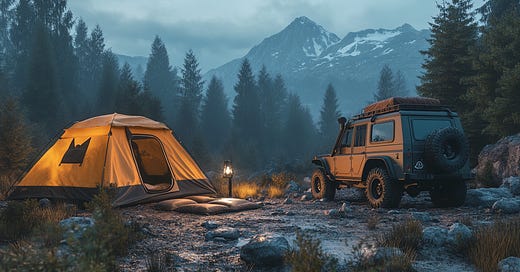


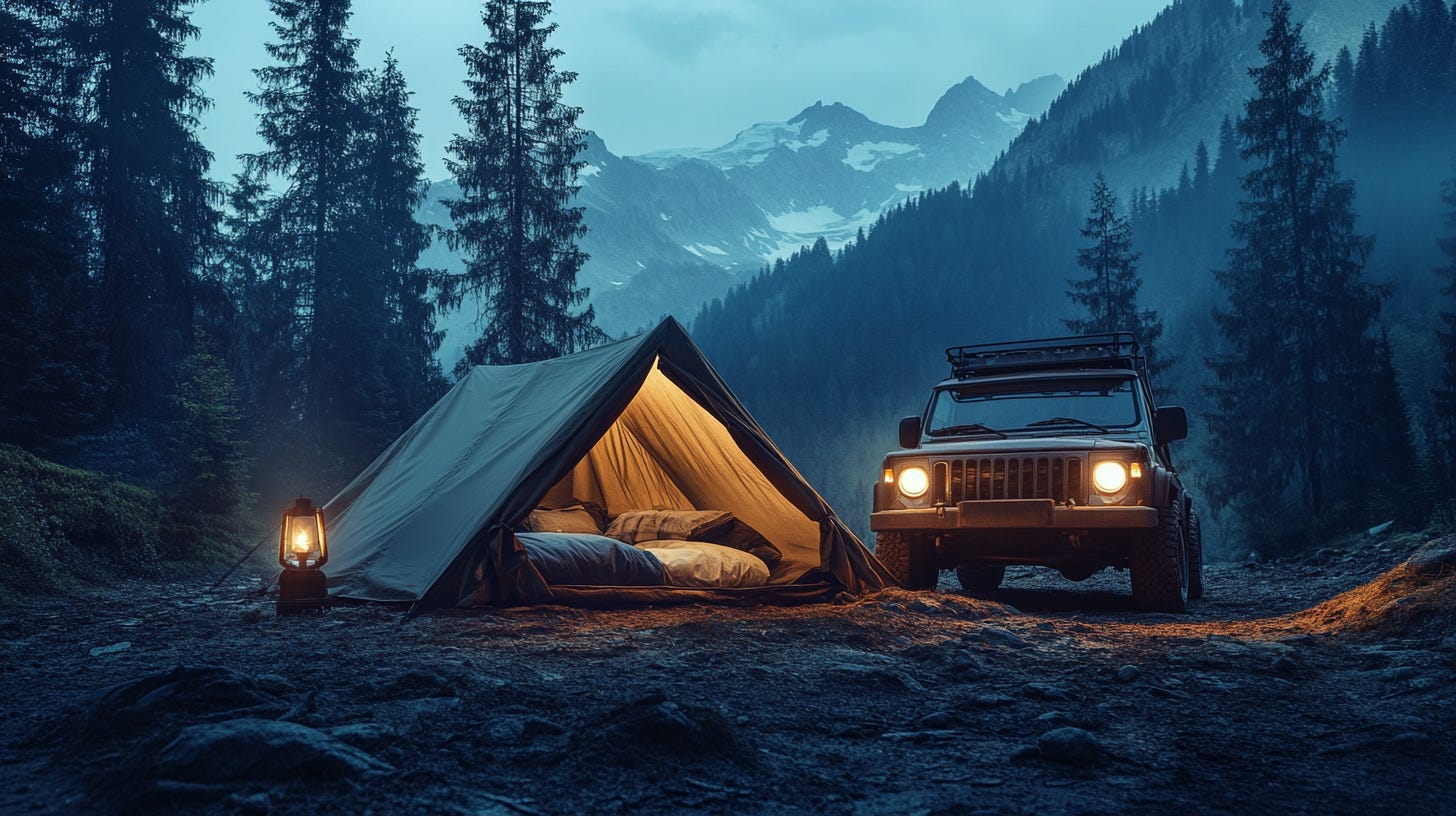
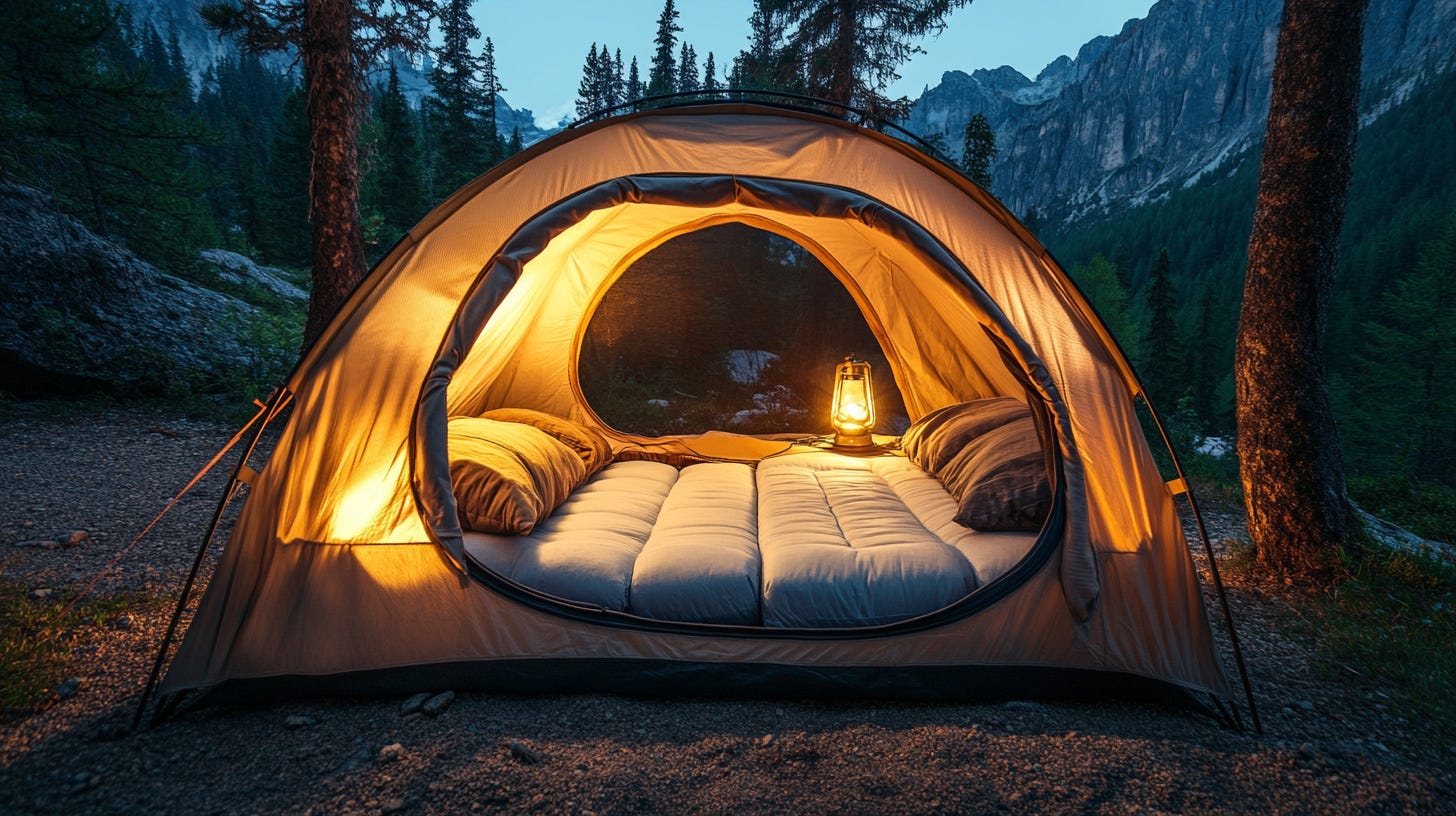
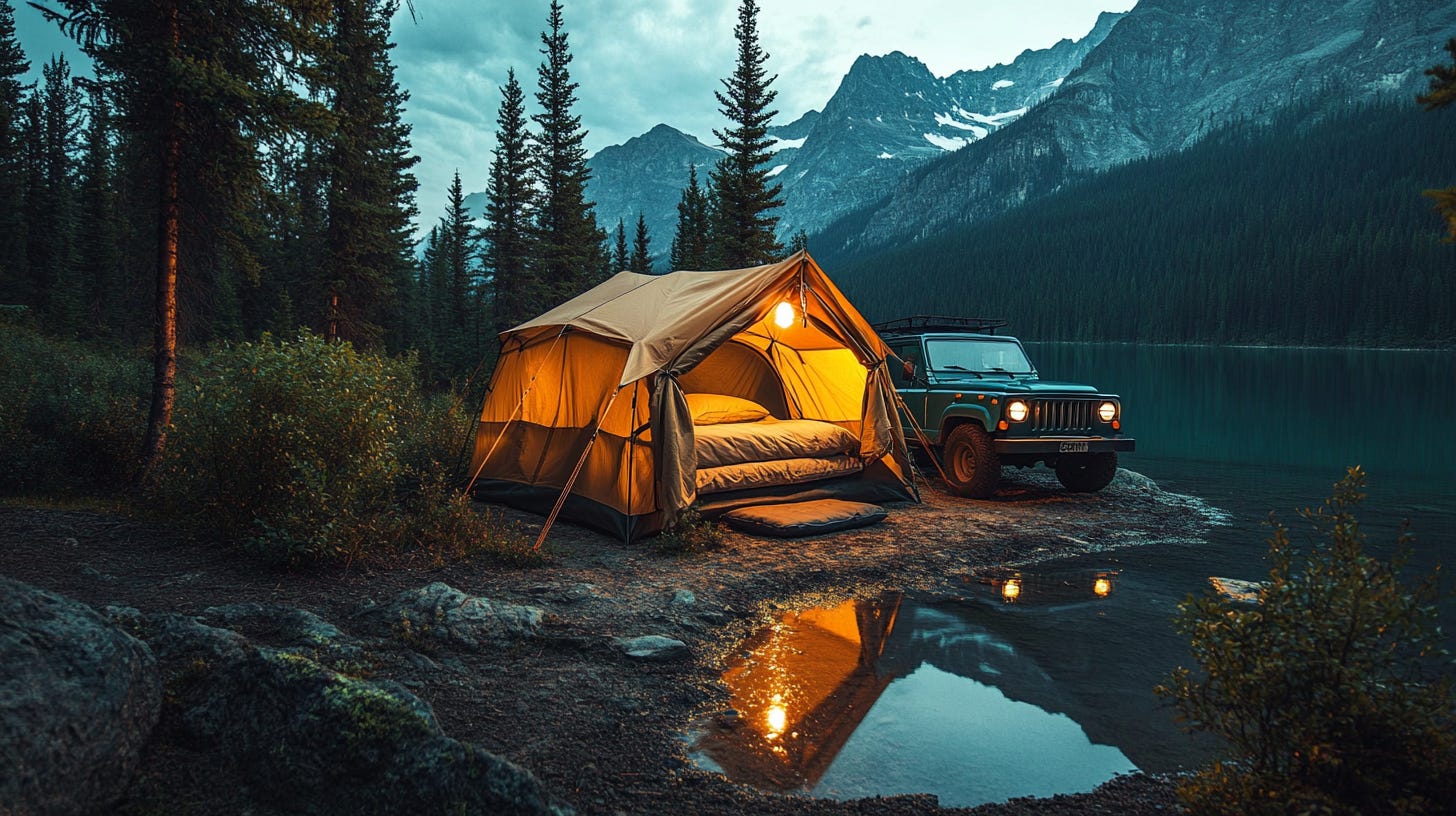


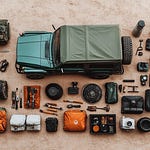

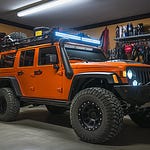


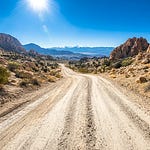
Share this post